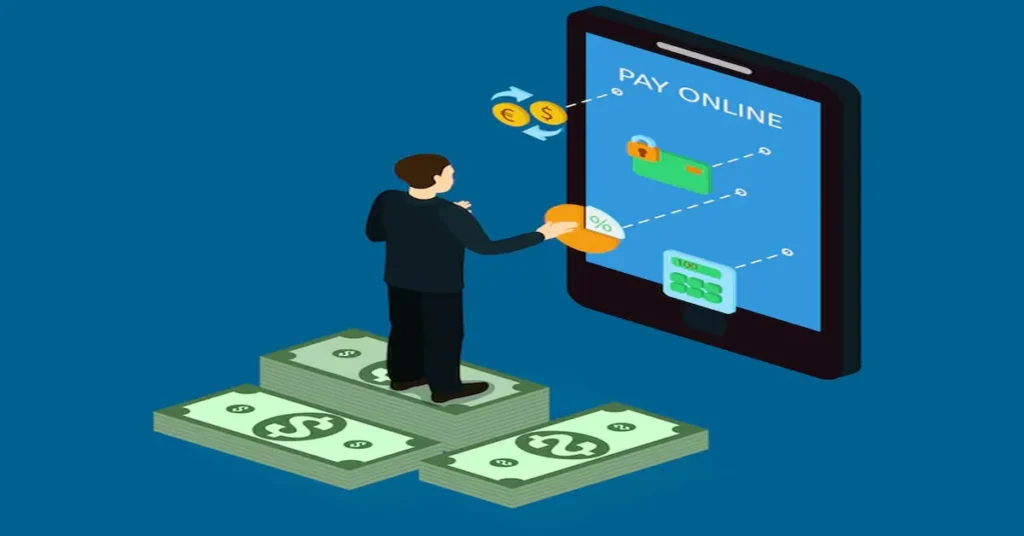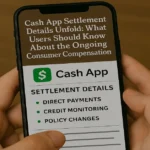The digital payment landscape is rapidly evolving, and recent developments surrounding the Cash App settlement are sending ripples through the entire peer-to-peer (P2P) payments market. With a staggering $175 million in refunds for customers and hefty penalties imposed on parent company Block, Inc., this legal resolution has far-reaching implications. As users await their reimbursements, industry experts ponder how this situation could reshape trust and security in P2P transactions moving forward. Dive into the details of these significant changes and discover what they mean for your future payments!
Background on Cash App Settlement
The Cash App settlement stems from allegations surrounding deceptive practices and regulatory violations linked to the popular payment platform. These concerns prompted state regulators and consumer protection agencies to take action against Block, Inc., the parent company of Cash App.
As a result, Block faces severe financial penalties totaling $255 million due to fraud-related issues. Additionally, customers are set to receive refunds as part of a broader resolution involving up to $175 million in compensation.
In parallel, multiple states have joined enforcement actions, emphasizing the importance of compliance with banking regulations. The ongoing scrutiny highlights challenges in maintaining user trust within the digital payments space.
Read: The Future of Trading: Why Crypto 30x.com is Making Waves
Cash App customers to see refunds after up to $175 million settlement
Cash App customers are set to benefit from a substantial $175 million settlement. This decision comes after numerous allegations regarding improper handling of customer funds and fraudulent activities. Many users reported unauthorized transactions, prompting regulatory scrutiny.
The refunds aim to compensate affected users who experienced financial losses due to Cash App’s practices. Customers may receive varying amounts depending on the severity of their cases and the total number of claims filed.
This landmark settlement marks a significant moment for peer-to-peer payment platforms, highlighting the need for greater accountability in safeguarding user funds against fraud and mismanagement.
Cash App Ordered to Pay $255 Million in Penalties Over Fraud
The Cash App platform faces a hefty penalty of $255 million due to fraud-related issues. This decision stems from allegations that the company failed to implement adequate measures against fraudulent activities. As peer-to-peer payment services grow in popularity, maintaining user trust is vital.
Regulators discovered significant lapses in anti-fraud protocols within Cash App’s operations. These shortcomings allowed scams to proliferate, putting customers at risk and leading to financial losses.
This substantial fine reflects ongoing scrutiny over digital payment systems. It serves as a stern reminder for companies like Cash App to enhance their security practices and protect users effectively.
Pennsylvania Department of Banking and Securities Joins $80 Million Settlement
The Pennsylvania Department of Banking and Securities has joined the ongoing $80 million settlement involving Cash App. This action reflects growing concerns about compliance with financial regulations in peer-to-peer payment services.
By participating in this settlement, Pennsylvania aims to hold Cash App accountable for alleged violations related to anti-money laundering practices. The move underscores the importance of regulatory oversight in ensuring that digital payment platforms adhere to state and federal laws.
This involvement signals a broader effort by various states to protect consumers and maintain the integrity of financial systems as technology continues evolving rapidly.
Enforcement Actions and Responses
Regulatory scrutiny has ramped up for Cash App in light of recent enforcement actions. Multiple states have launched investigations into the app’s compliance with financial regulations, focusing on consumer protection and anti-money laundering practices.
In response to these findings, state regulators are demanding increased transparency from Cash App. The pressure aims to ensure that users’ transactions remain secure and compliant with federal standards.
Cash App’s parent company faces significant penalties as a result of these actions. These developments could redefine how similar apps operate within the peer-to-peer payment landscape moving forward.
Michigan joins other states in enforcement action
Michigan has taken a significant step by joining other states in enforcement actions against Cash App. This decision reflects growing concerns over the platform’s compliance with financial regulations.
The Michigan Department of Insurance and Financial Services is now actively involved, aiming to ensure that consumers are protected from potential fraud and misuse within the system. Their collaboration with state regulators highlights the urgency of addressing these issues.
By joining forces with other states, Michigan seeks to enhance accountability for Cash App, promoting transparency and consumer trust in peer-to-peer payment systems across the nation.
State Regulators Issue $80 Million Penalty to Block, Inc., Cash App for BSA/AML Violations
State regulators have imposed an $80 million penalty on Block, Inc., the parent company of Cash App. This action stems from serious violations related to the Bank Secrecy Act (BSA) and Anti-Money Laundering (AML) regulations.
The enforcement underscores a growing concern over compliance failures in financial technology companies. Regulators are focusing on ensuring that digital payment platforms adhere to laws designed to protect against illicit activities.
This significant penalty highlights the need for stricter oversight in peer-to-peer payment systems. As these platforms grow in popularity, maintaining regulatory standards becomes more essential than ever.
What the CFPB said about Cash App woes
The Consumer Financial Protection Bureau (CFPB) has expressed serious concerns regarding Cash App’s handling of customer complaints and disputes. They highlighted that many users faced challenges accessing their funds, leading to significant frustration.
Moreover, the CFPB pointed out deficiencies in Cash App’s fraud detection systems. These flaws potentially exposed customers to unauthorized transactions without proper recourse for recovery.
As a result, the bureau is advocating for stricter regulations in the peer-to-peer payment sector. This push aims to ensure consumer protections are enhanced and fraudulent activities are effectively addressed moving forward.
Impacts and Claim Information
The Cash App settlement marks a significant shift in how peer-to-peer payment platforms operate. Users can expect increased transparency and compliance from service providers moving forward. This case highlights the need for better regulatory practices within the industry.
With millions set aside for refunds, affected customers will have an opportunity to reclaim their funds. The settlement aims to rectify past wrongs and restore trust among users.
Claiming compensation is straightforward, but it’s essential to stay informed about deadlines and procedures. Keeping an eye on official announcements will ensure that eligible customers receive their rightful share of the settlement funds.
How the Cash App Settlement Could Change the Future of Peer-to-Peer Payments
The Cash App settlement marks a significant turning point for peer-to-peer payment platforms. As regulators tighten their oversight, companies will need to prioritize compliance and customer protection to avoid hefty penalties. This shift may lead to enhanced security features and greater transparency in transactions.
Users can expect improved safeguards against fraud as businesses adapt to these new regulations. Enhanced user education about risks could also emerge as a priority. The settlement sets a precedent that could influence how all financial technology firms operate moving forward.
This case highlights the importance of accountability in the digital finance space, shaping industry standards for years ahead.
Who can file a claim for the Cash App settlement?
Individuals who used Cash App between the specified dates are eligible to file a claim for the settlement. This includes anyone who experienced financial losses due to unauthorized transactions or fraud linked to their accounts.
Additionally, users affected by violations related to Bank Secrecy Act and Anti-Money Laundering regulations may also qualify. It’s essential for claimants to provide adequate documentation supporting their claims.
Users should carefully review the eligibility criteria outlined in the settlement announcement. Ensuring you meet these requirements is crucial for a successful submission of your claim.
How to file a Cash App claim
To file a claim for the Cash App settlement, start by gathering your account information. Ensure you have details like your username and transaction history handy. This will make the process smoother.
Next, visit the official claims website designated for the settlement. Here, you’ll find specific instructions on how to submit your claim online.
Fill out the required forms carefully. Be sure to provide accurate information to avoid any delays in processing your claim. Once submitted, keep an eye on your email for updates regarding your status and any potential refunds coming your way.
What is the deadline for Cash App claims?
The deadline for filing a claim in the Cash App settlement is crucial for eligible users. Claimants must ensure that their submissions are completed by the specified date to receive any potential refunds.
Generally, deadlines can vary based on court approvals and specific settlement terms. It’s important to stay updated through official channels regarding these changes.
To avoid missing out, users should gather necessary documentation early and be proactive about submitting their claims. This timely approach will help ensure they benefit from the resolution of this significant legal matter.
How much money can you get in the Cash App settlement?
The Cash App settlement has significant financial implications for users. Depending on individual circumstances, refunds can vary widely. Eligible customers may receive amounts that reflect their specific experiences with the app and any incurred losses.
While $175 million is set aside for these claims, not all participants will benefit equally. The final amount each claimant receives will be calculated based on the total number of valid claims filed.
As more details emerge about distribution, affected users should stay informed to understand their potential compensation better. Claimants are encouraged to monitor announcements regarding fund allocation regularly.
Reactions and Statements
The Cash App settlement has sparked a variety of reactions from stakeholders. Customers are hopeful for refunds and better practices, while financial experts voice concerns over the implications for peer-to-peer payment platforms.
Block, Inc., parent company of Cash App, expressed disappointment regarding the penalties but emphasized their commitment to compliance. They highlighted ongoing efforts to enhance security measures and protect users.
Regulatory bodies have also weighed in, stressing the importance of adherence to banking laws. Their statements reflect a clear message: accountability is crucial in maintaining consumer trust within digital finance ecosystems.
Read: From Humor to Insight: The Rise of the Gen Z Boss Meme TikTok
What the Cash App parent firm has to say
Block, Inc., the parent company of Cash App, has expressed its commitment to addressing regulatory concerns. They recognize the importance of compliance and are working diligently to enhance their practices.
In light of recent settlements, Block emphasized its dedication to improving systems that prevent fraud and ensure customer protection. The firm aims to rebuild trust among users following these events.
Additionally, Block is actively engaging with regulators to understand their expectations better. This collaboration signals a proactive approach toward creating a safer environment for peer-to-peer transactions within Cash App’s platform.
Additional Resources
For those looking for more information on the Cash App settlement, a variety of resources are available. Websites like the Consumer Financial Protection Bureau (CFPB) provide official updates and guidelines regarding consumer rights related to financial services.
Additionally, legal aid organizations often offer support for individuals navigating claims processes. They can assist in understanding eligibility requirements and filing procedures effectively.
Forums and community groups on social media platforms allow users to share their experiences. Engaging with these communities can help you stay informed about any developments or changes concerning the Cash App settlement.
Related news and updates
Recent developments surrounding the Cash App settlement continue to unfold. Regulatory bodies are closely monitoring the situation as more states may consider similar enforcement actions. This trend indicates a growing concern about compliance in peer-to-peer payment platforms.
Additionally, other financial service providers are being scrutinized for potential violations related to money laundering and fraud prevention. This scrutiny could lead to stricter regulations across the industry.
Consumers are advised to stay informed about ongoing updates regarding their rights and any claim processes that may arise from these settlements. Knowledge is essential for navigating this evolving landscape successfully.
Resources for developers and technical information
Developers looking to navigate the Cash App settlement can find a wealth of resources online. The official Cash App website offers detailed documentation regarding compliance and security protocols, essential for understanding any changes following the settlement.
Additionally, forums like GitHub and Stack Overflow feature discussions on integrating peer-to-peer payment systems effectively. These platforms enable developers to exchange best practices and troubleshoot common issues related to Cash App functionalities.
Technical blogs often provide insights into API integrations specific to cash transfer services. Engaging with these communities can help developers stay informed about ongoing updates and innovations in peer-to-peer payments.
Conclusion
The Cash App settlement marks a significant moment in the realm of peer-to-peer payment systems. As consumers await refunds, this case highlights the importance of regulatory compliance and accountability in fintech.
With millions at stake, companies will likely reevaluate their practices to avoid similar pitfalls. This scrutiny can lead to increased security measures and improved user experiences across platforms.
As users become more aware of their rights, they may demand greater transparency from financial apps. The future landscape of digital payments could evolve rapidly as both consumers and regulators engage more actively with technology providers.
FAQs
The Cash App settlement signifies a pivotal moment for peer-to-peer payment platforms. With significant refunds and penalties in place, the implications extend beyond just financial reparations. Customers can expect increased transparency and improved security measures as companies respond to regulatory scrutiny.
Now, let’s address some frequently asked questions about the cash app settlement:
1. What is the Cash App settlement?
This refers to recent legal actions resulting in significant monetary penalties against Cash App’s parent company due to violations related to fraud and compliance failures.
2. Who is eligible for refunds from this settlement?
Customers who experienced issues related to their transactions or account management during the specified period may be eligible.
3. How do I file a claim for my refund?
You can file a claim through designated online portals set up specifically for this purpose, often linked on official state websites or Cash App announcements.
4. When do claims need to be submitted by?
Deadlines vary based on state regulations but typically fall within several months after announcements are made regarding settlements.
5. How much can individuals receive from the settlement?
While exact amounts depend on various factors, estimates suggest that individual payouts could range significantly based on qualifying claims filed by users affected by these violations.







